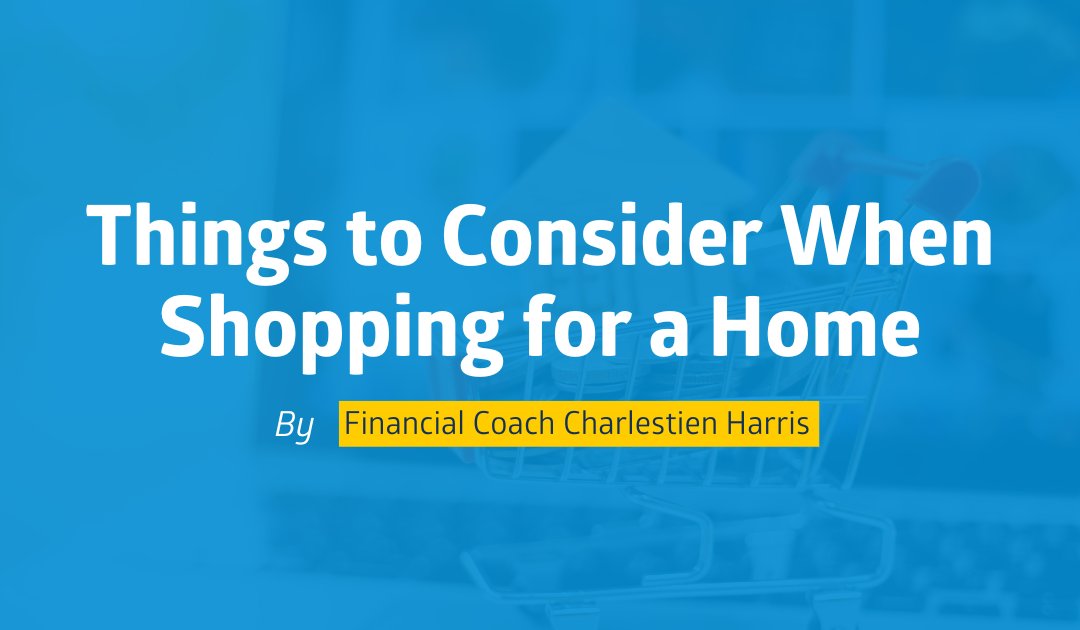By: Charlestien Harris
So, you have finally decided to take the plunge into homeownership! This can be both an exciting and nerve-racking time when you think about the big decision you just made. However, it does not have to be. With careful planning and thorough research, you can be confident that you made the right decision.
As you begin the process of searching for that perfect home, there are a few things that you might want to consider before, during, and after you make your selection. Taking a few extra steps to help you better prepare can potentially save you time and, sometimes, money when it comes to making that final choice. Below are just a few things you might want to consider.
1. Affordability is essential. Nothing can be more disappointing than finding your dream house that you have absolutely fallen in love with, only to discover that the price is out of your range. Affordability should be the number one thing you look for in the home-buying process because you want to make sure your current budget can handle the monthly payment.
2. Location, location, location. It is crucial to consider the location of the house, as well. It is just as important to know how long you will be living there because you don’t want to get stuck in a home located in a city or neighborhood you don’t want to live in. I would suggest that you visit the area several times during different times of the day or night to see how you like it. You might want to discover where and what resources are available in the area and how convenient living in that area will be for you or your family, especially if you have children.
3. Consider the size of the property. Are there enough bedrooms? Is there enough closet space? How large are the bedrooms? These are just a few questions you should be asking yourself when choosing a home. All of these factors can play a key role in the decision-making process when you choose to buy. Properties come in all shapes and sizes, and it is crucial that you choose the right size for your or your family’s needs.
4. The age and condition of the property matter. The age and condition of the property can be a significant liability because there may be some hidden issues you don’t know about. Those issues may or may not be disclosed at the time you are looking at that particular property. Careful inspection with your own eye, as well as having a certified or licensed home inspector look the house over, can save you a lot of headaches, heartache, and quite possibly prevent you from making a big mistake by purchasing a property with hidden problems.
5. Consider the value of the property. You want to make sure you are getting what you pay for. Some properties can be overpriced, and some properties are underpriced. You really want to make sure you are getting the best value for the money you are spending. That is why having the property independently appraised can be to your advantage because you can learn its true value and not end up paying more than it is actually worth. Property values can fluctuate, so it is important to do your research before you make an offer on a property. Additionally, your bank is only going to loan you a certain percentage of the total purchase price of the home. If you don’t have the resources to make up the difference, you may end up not being able to get the home you had your heart set on.
6. Be sure to get pre-approved. This is very, very important. Pre-approval is when the lender issues you a letter or provides documentation stating that they are willing to lend you a certain range of funds or a specified amount toward the purchase of a home. When you are pre-approved, you know you have the assurance that you can decide on how much house you can shop for. The hard numbers usually have already been “crunched,” and you can be more confident when you make an offer on a home.
These are just a few factors you need to consider before, during, and after you purchase a home, but there are many more that should also be considered. If you need more information, you can always contact a HUD-approved counseling agency and speak with a certified housing counselor. Southern Bancorp has four HUD-certified housing counselors on staff who would be glad to speak with you about your housing needs or answer your questions about the home-buying process.
For more information on this or other financial topics, please feel free to call me at 662-624-5776 or email me at Charlestein.Harris@testbanksouthern.aceone.io.
Until next week – stay financially fit!

